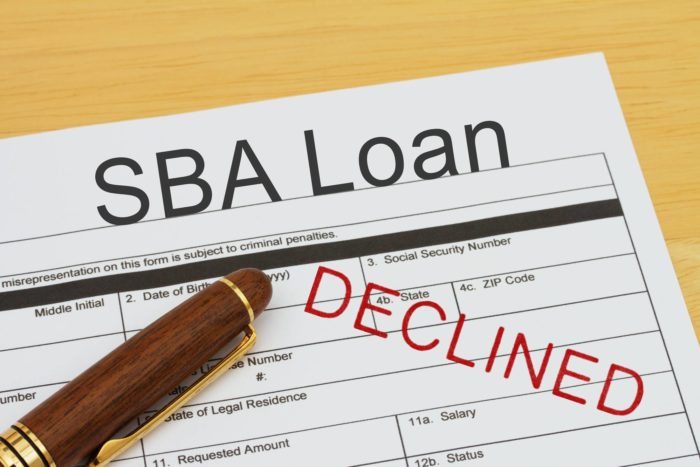Top Class Actions’s website and social media posts use affiliate links. If you make a purchase using such links, we may receive a commission, but it will not result in any additional charges to you. Please review our Affiliate Link Disclosure for more information.
Two minority-owned small businesses have filed a class action lawsuit against the U.S. government alleging that they were shut out of the COVID-19 small business lending program by large companies that received millions of dollars.
The owners of a financial consulting business and jewelry business say that they and other minority-owned small businesses were unable to even apply for loans through the Coronavirus Aid, Relief, and Economic Security (CARES) Act.
They accuse the U.S. Small Business Administration, SBA Administrator Jovita Carranza, Secretary of the Treasury Steven Mnuchin, and the United States of America of favoring larger businesses and discriminating against small businesses owned by minorities and women.
Do you own a small business? Were you able to apply for COVID-19 aid through the CARES Act? Get legal help here.
The plaintiffs each say that their businesses has been harmed by how the CARES Act aid was disproportionally dispersed by the government.
The jewelry store owner alleges that most of her business is done at trade shows and for weddings held in the spring and early summer. She says that these events have been postponed indefinitely or cancelled, leaving her with only negligible income through online sales.
The owner of the financial consulting business reportedly sells insurance, pensions, and retirement policies. He says that his business requires that he meet with clients in-person and, because of the outbreak, he can no longer meet with his clients. Further, he says that his clients can no longer afford his services due to the coronavirus outbreak.
Both plaintiffs say that, despite applying for COVID-19 aid as early as they thought possible, they were denied because the program ran out of funding.
“Defendants failed to appropriately protect the interests of a large part of this country’s economic engine – sole proprietorships, self-employed individuals, or independent contractors – by giving preference to businesses who maintained W2 employees on payroll,” contends the minority-owned small businesses class action lawsuit.
“In fact, Defendants knowingly, intentionally, and illegally discriminated against minority-owned and woman-owned Nonemployer Businesses.”
The complaint points out that the CARES Act provided nearly $350 billion in aid to businesses with less than 500 employees through Paycheck Protection Program Loans.
However, these PPP Loans were allegedly first offered to businesses with employees, not “nonemployer businesses” which are mainly owned by minorities and women.
“By the time the Defendants allowed these Nonemployer Businesses to submit applications, the money was gone — nearly $350 billion,” say the plaintiffs.
According to the minority-owned small businesses class action lawsuit, while the CARES Act intended for all small businesses to benefit from the $350 billion payout, the Act did not detail how that was to occur. Instead, the Small Business Administration and U.S. Treasury came up with discriminatory distribution methods.
Unfortunately for minority-owned small businesses, the government decided to designate two application time periods.
Businesses with up to 500 W2 employees were reportedly eligible for the initial application process starting April 3, 2020.
Businesses without employees would be allowed to apply for CARES Act loans during the second period starting April 10, 2020.
By the time the initial applications were process, there were no funds left for the second round of applicants, allege the plaintiffs.

“The first wave of applicants, businesses with payroll employees, were given a 14- day window of opportunity to apply for the PPP loans before the funds were exhausted,” alleges the minority-owned small businesses class action lawsuit.
“In contrast, the second group, Nonemployer Businesses, only had a one-day window to apply before the funds were exhausted.”
The plaintiffs allege that of the 9.9 million firms owned by women in the United States, 89.5 percent of them do not have W2 employees and, thus, did not qualify to apply for COVID-19 Aid until the second round of applications.
Similarly, 96 percent of all African American-owned businesses do not have W2 employees.
The SBA and Treasury knew that opening CARES to businesses with W2 employees would disproportionally harm women and minority-owned small businesses, alleges the complaint.
The Impact of Coronavirus on Minority-Owned Small Businesses
Economists can only speculate on the mid- to long-term effects the COVID-19 outbreak and related restrictions will have on small businesses. From essential workers demanding proper protective equipment, increases in remote work, allegations of price gouging, and false advertising, the coronavirus has affected nearly all businesses.
The minority-owned businesses class action lawsuit seeks to represent all minority and women-owned “non-employer” businesses. They are seeking damages for alleged violations of the Fifth Amendment of the Constitution.
The COVID-19 outbreak has affected nearly all aspects of daily life. Top Class Actions is staying on top of the legal issues with a guide to coronavirus lawsuits.
The plaintiffs and proposed Class Members are represented by Glen E. Frost, Matthew P. Kraeuter, Sean P. Hatley, and Elizabeth M. Burlington of Frost Law.
The Minority-Owned Small Businesses Class Action Lawsuit is Infinity Consulting Group LLC, et al. v. The United States of America, et al., Case No. 8:20-cv-00981-GJH, in the U.S. District Court for the District of Maryland.
Join a Free Coronavirus Class Action Lawsuit Investigation
If you believe your rights were violated in a way that is directly related to the coronavirus pandemic, you may qualify to join this coronavirus class action lawsuit investigation.
ATTORNEY ADVERTISING
Top Class Actions is a Proud Member of the American Bar Association
LEGAL INFORMATION IS NOT LEGAL ADVICE
Top Class Actions Legal Statement
©2008 – 2024 Top Class Actions® LLC
Various Trademarks held by their respective owners
This website is not intended for viewing or usage by European Union citizens.
















15 thoughts onMinority-Owned Small Businesses Weren’t Able To Apply For COVID-19 Aid
I lost my 2 businesses during the COVID-19 I applied to all of them and was denied. Single mother that started own business was doing great before the shut down. Now I’ve lost both business, homeless, and on government assistance. I’m a woman and a minority.
I will join
Disparate treatment and disparate impact are occurring to millions of small businesses as well as FTC Violations on noticificstions and credit decisions
Add me, PLS
Add me please!
I applied, and applied, and was unable to get the necessary funding that would have saved me from having to shutdown my business that has operated for 36 years in San Diego. I am a woman, and a sole proprietor. I am a Master Tattoo Artist, a Tatau Master (Polynesian Hand-Tap tattooing). I am Internationally known. Published. Voted Best Tattoo Artist in San Diego thru San Diego City Beat in ’08, ’10, ’12, ’14, ’16 ’18. I own a professional Tattoo studio. We were assured, and small businesses were told not to worry, that we would receive funding to keep our businesses afloat. Funding that was necessary to survive the government mandated shutdowns. We were told that we would not have to prove our creditworthiness to be able to receive this funding. We were also told that this would not affect our credit score. We were shutdown the end of February/ beginning of March. For a total of 9 months in 2020 and a month and a half in 2021.
In January 2020,I had a 690 credit score. Paid on time – never late…
I found out about the PPP and EDIL in June, after 4 months after being forced to close my doors.
I was denied funding for “Unsatisfactory credit history”
This devastated my ability to survive through the mandatory shutdowns. I am attempting to find a new location, and rebuild with absolutely no financial assistance.